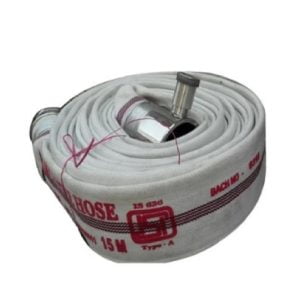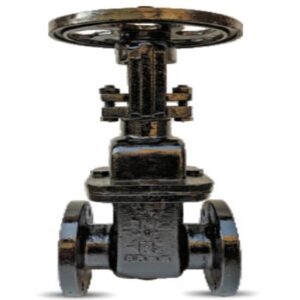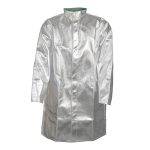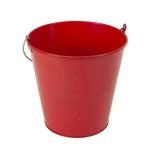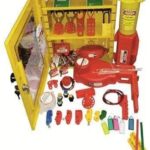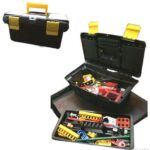Your list is empty, add products to the list to send a request
Tips for Choosing the Right Fire Protection Equipment for Your Business

28
Mar
Fire protection equipment is an essential component of any business. The right fire protection equipment can prevent a small fire from becoming a devastating inferno, which can cause significant damage to property and lives. Choosing the right fire protection equipment for your business can be daunting, as many different types of fire protection equipment are available in the market.
This blog will discuss choosing the right fire protection equipment for your business. We will cover the types of fire protection equipment available, the factors to consider when selecting fire protection equipment, and the regulations and standards that must be met.
Types of Fire Protection Equipment
Several types of fire protection equipment are available, each serving a specific purpose in protecting your business. The different types of fire protection equipment include:
Fire extinguishers are portable devices that are used to extinguish small fires. Fire extinguishers come in different types, including water, foam, powder, and CO2. The kind of fire extinguisher required depends on the fire that will likely occur in your business.
- Fire Alarm Systems
The purpose of fire alarm systems is to detect fires and notify people within a structure. Detectors for smoke, heat, and flames are common components of fire alarm systems. The fire alarm warns people to leave the building when a fire is suspected.
- Sprinkler Systems
Sprinkler systems are designed to extinguish fires by spraying water onto the fire. Sprinkler systems are typically installed in high-risk areas, such as kitchens, data centres, and chemical storage.
- Fire Suppression Systems
Suppressing fires is what fire suppression systems are made to do. Foam, dry chemicals, and carbon dioxide systems are all viable options for fire control. Computer server closets and document storage spaces are two common places to find fire suppression systems.
Factors to Consider When Choosing Fire Protection Equipment
When choosing fire protection equipment for your business, there are several factors to consider. These factors include:
- Type of Business
Your business type will determine the fire protection equipment you need. For example, if you run a restaurant, you will need a fire suppression system in the kitchen to extinguish grease fires.
- Size of Business
The size of your business will also determine the type and number of fire protection equipment required. Larger companies may require multiple fire alarm systems and sprinkler systems to protect the entire building adequately.
- Risk Assessment
A risk assessment should be conducted to identify potential fire hazards in your business. The risk assessment will help you determine the type of fire protection equipment required to mitigate these risks.
- Budget
The cost of fire protection equipment can vary significantly, so it is essential to determine your budget before making a purchase. While it may be tempting to choose the cheapest option, investing in high-quality fire protection equipment is necessary to ensure the safety of your business and employees.
- Maintenance
Fire protection equipment requires regular maintenance to ensure that it is in good working condition. When choosing fire protection equipment, factoring in the cost of care is essential.
Regulations and Standards
When choosing fire protection equipment for your business, several regulations and standards must be met. These regulations and standards include:
- National Fire Protection Association (NFPA)
The NFPA is a nonprofit organization that sets standards for fire protection equipment in the United States. The NFPA’s standards cover everything from installing fire protection equipment to testing and maintaining the equipment.
- Occupational Safety and Health Administration (OSHA)
OSHA is a government agency that sets standards for workplace safety. OSHA requires employers to provide a safe workplace for employees, which includes the installation of fire protection equipment in areas where there is a risk of fire. Employers must also ensure their employees receive proper training on using fire protection equipment.
- Local Fire Codes
Local fire codes can vary depending on the location of your business. It is important to check with your local fire department to ensure you meet all local fire codes and regulations.
- Insurance Requirements
Many insurance companies require businesses to install certain fire protection equipment to qualify for insurance coverage. It is important to check with your insurance provider to determine what fire protection equipment is required for coverage.
In addition to meeting these regulations and standards, it is important to regularly inspect and maintain your fire protection equipment to ensure it is in good working condition. Regular inspections can help identify any issues with the equipment before they become a problem and ensure that your equipment is ready to use in the event of a fire.
Cost of Equipment
The price of fire safety gear should also be taken into account. Some may cost more than comparable options from other sellers. Nonetheless, they are constructed to provide a higher standard of safety. Choose the solution that best fits your demands and finances.
There are a few factors to bear in mind while choosing fire safety equipment for your company:
- Fire suppression systems should be checked for approval by the local fire department. This guarantees that it satisfies all mandatory safety requirements.
- What kinds of fire safety measures are necessary for your business will depend on its nature. For instance, fire suppression systems designed for commercial kitchens are obligatory in a restaurant.
- Check your finances. You shouldn’t scrimp on quality, but different pieces of machinery can cost anything from a few hundred to several thousand dollars. Determine what you can afford and what you need.
- Fire safety equipment must be regularly serviced. Be sure to heed the advice of your top choice in fire safety equipment suppliers in India. Maintaining your gear in pristine condition like this ensures it will be operational whenever needed.
- The installation standard must be at least as high as the devices. Trained professionals should only install fire safety equipment to ensure optimal performance in the case of a fire.
Conclusion
Choosing the right fire protection equipment for your business is essential for ensuring the safety of your employees and protecting your property. When selecting fire protection equipment, it is important to consider the type of business you run, the size of your business, the potential fire hazards, your budget, and the maintenance requirements of the equipment.
In addition to these factors, ensuring that your fire protection equipment meets all applicable regulations and standards, including those set by the NFPA, OSHA, local fire codes, and your insurance provider is important. Investing in high-quality fire protection equipment and regularly inspecting and maintaining your equipment can help prevent small fires from becoming devastating infernos and protect your business and employees from harm.















